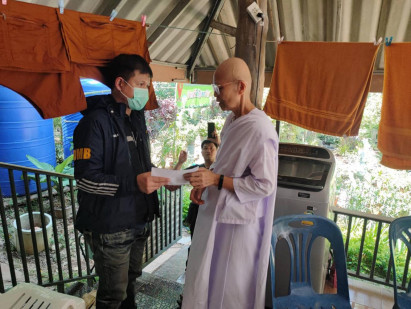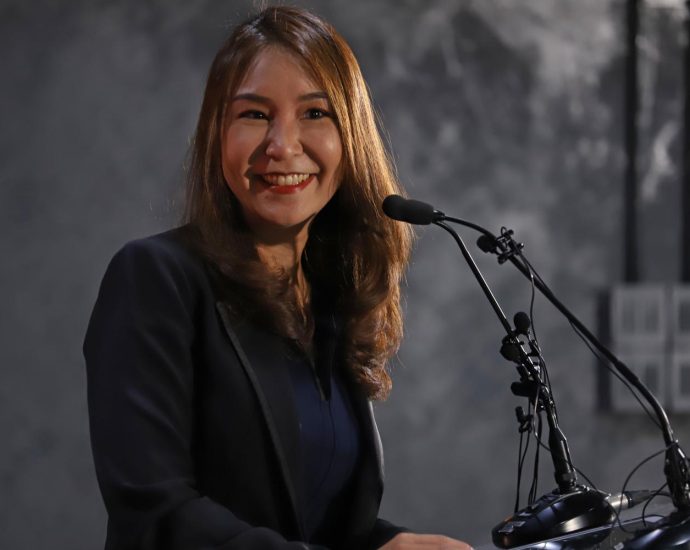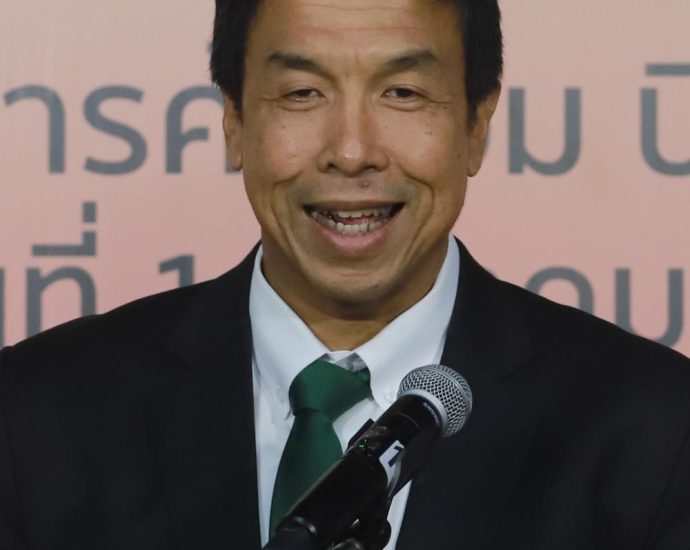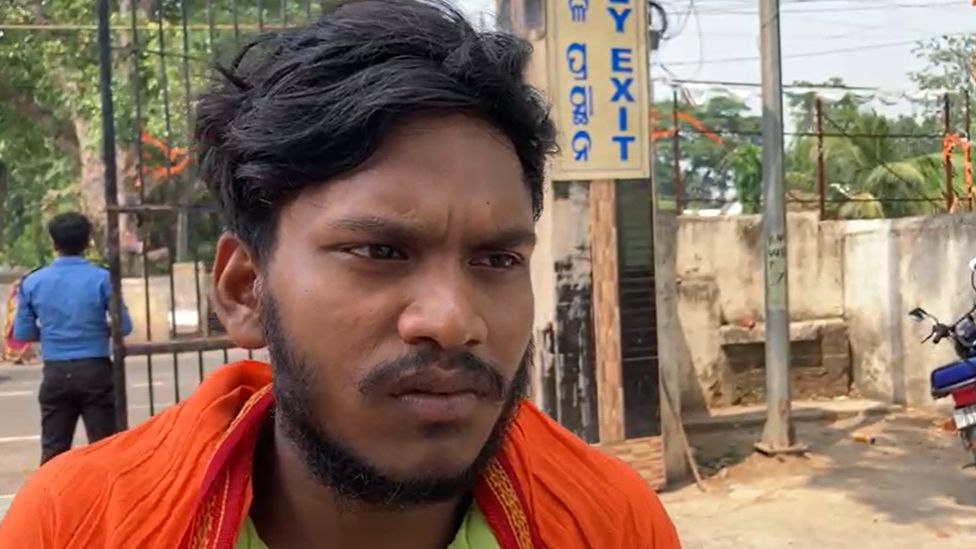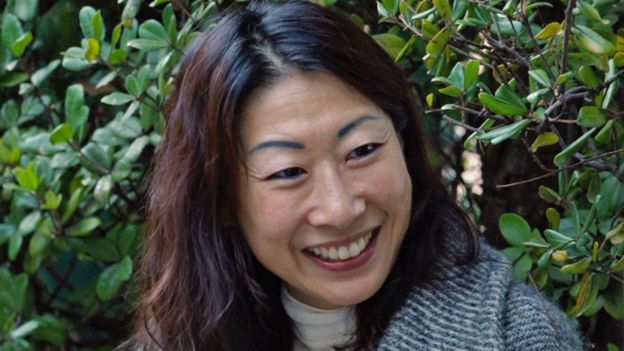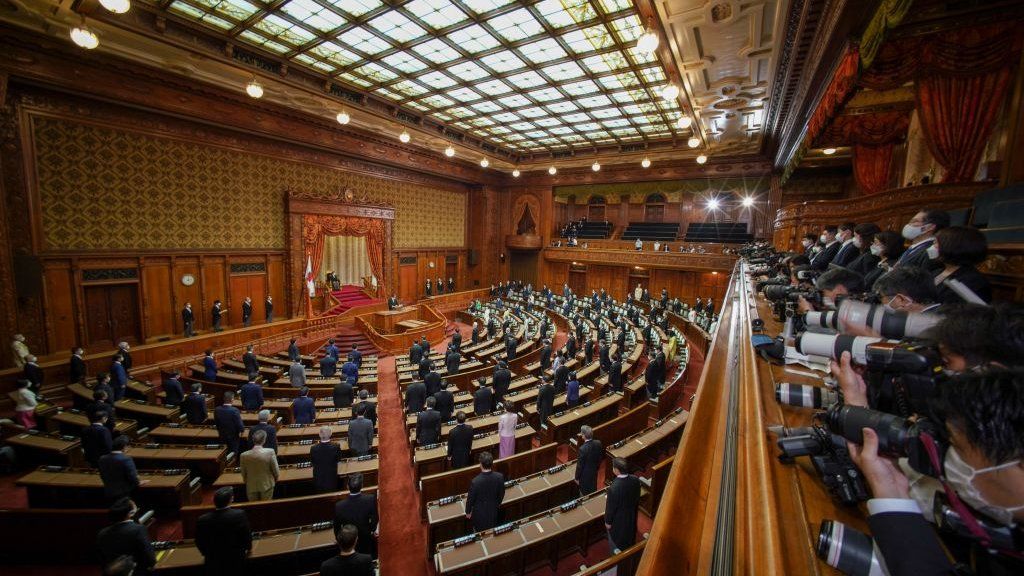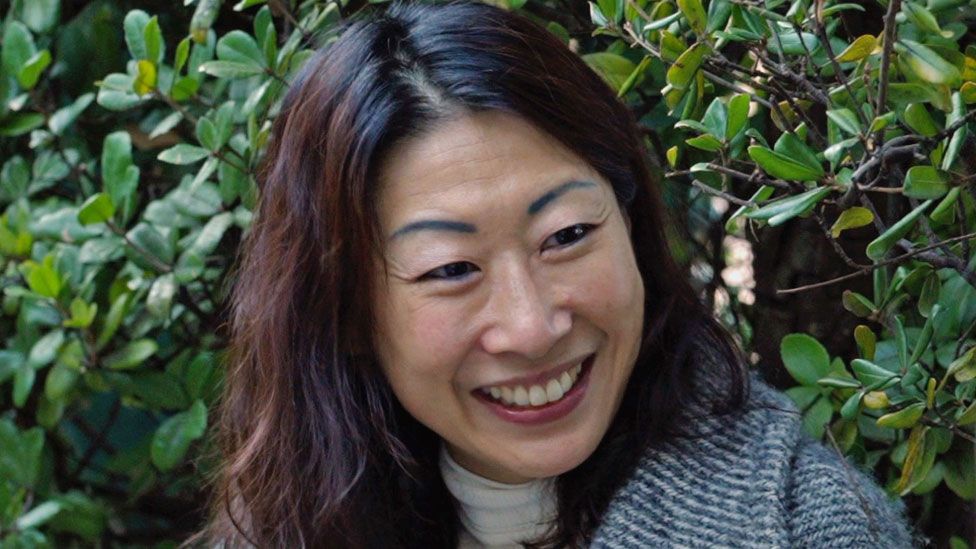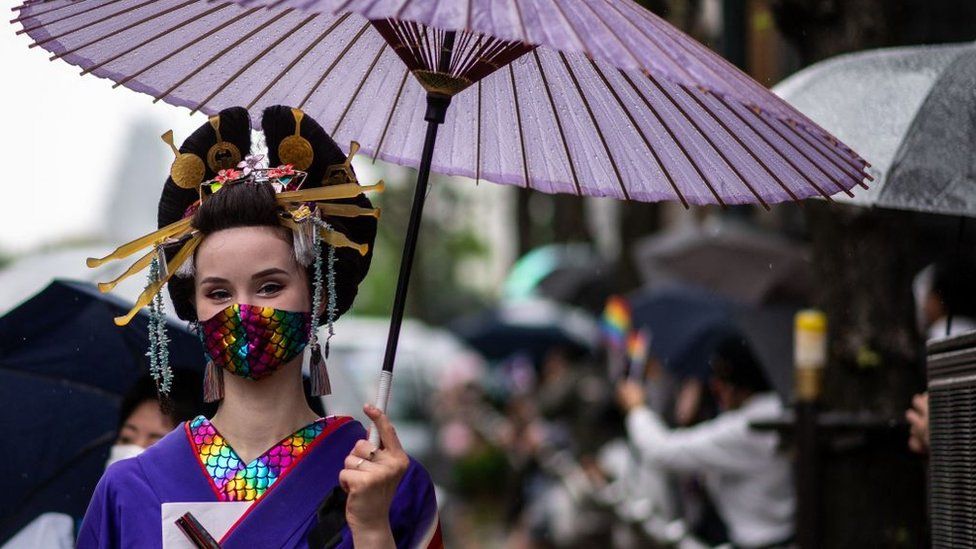Amazing Thai is MasterChef champ 2023
Chiang Mai native’s dream comes true

Chariya Khattiyot, 40, was crowned MasterChef 2023 champion in the United Kingdom last Thursday for her dazzling dishes of northern-style Thai food.
She is the first Thai cook to earn the title in the show’s 19 seasons. She beat 44 other contestants over the eight-week BBC One contest.
“I’ve loved watching MasterChef for many years and decided to enter the competition so I could showcase northern Thai cuisine,” she said.
“I am passionate about bringing northern Thai cuisine to the UK while making use of local ingredients. Thai food is not just tom yam and pad Thai. It has so many flavours, layers and textures and is phenomenal. In many ways, my dishes are a fusion between Southeast Asian and Western food,” she said.
Born in Chiang Mai, Ms Chariya lives in Basingstoke, Hampshire with her fiancé Adam, whom she met in Japan whilst studying there in her early twenties.
After moving to the UK, Ms Chariya spent seven years as a district manager for a national coffee shop chain before setting up her own coffee roasting company in 2016 and becoming a master coffee roaster.
She loves cooking because of her late grandfather, who raised her alone and taught her how to make the most out of what they had and get the best flavours from food.
They grew their own vegetables and cooked on a fire outside to create simple but tasty meals. During her childhood, Ms Chariya also loved to play restaurant and remembers fondly that her grandad was always her best customer.
Her winning menu in the contest on June 1 started with a Thai lotus tuille filled with coconut jelly, fried king prawns, and pomelo fruit salad flavoured with honey, palm sugar and coconut.

Chariya Khattiyot is the latest MasterChef Champion 2023 in the UK. Chariya’s Instagram
Her main course was a traditional northern Thai “khantoke” platter of Wagyu sirloin steak in hang le sauce, minced lamb in a spicy tomato and shrimp paste, jackfruit and scallop salad served with sticky rice and scallop crisp crackers.
The final dish was strawberries and cream — a strawberry jelly and vanilla cremeux ring, filled with macerated strawberries in strawberry liqueur, pistachio sponge, strawberry shards and a strawberry and Thai basil sauce.
MasterChef judge Gregg Wallace said Ms Chariya was outstanding and told her: “Since the first time you walked into this kitchen, it’s been dish upon dish of exciting, beautiful food. What I really admire about you is just how hard you work in pursuit of perfection — to really uncover new techniques, to find bigger and bigger flavour. Do you know who else has those qualities? Top professional chefs. You are the real deal. You’re an amazing cook.”
The other MasterChef judge, John Torode, said Ms Chariya is a proper master.
“Chariya’s food has always been honest and from the heart. It’s always exciting, it’s always unusual and it’s always been beautiful and addictive… A proper master,” he said.
Ms Chariya dedicated her success to her late grandfather.
“I’m so happy. This just proves that if you dream something and you work really hard and you never give up, you can get it. That’s what my grandad said to me — never give up. He would be so proud of me,” she said.
She also dreams of opening a restaurant where she can showcase her northern Thai food in the UK.
“From a little girl who cooked in a kitchen with no walls, to lift that trophy is going to be a story I can tell to inspire girls who have a hard life. If you work hard, I’m sure you can achieve something,” she said.

The ‘khantoke’ style main course served with Wagu steak in ‘hang le’ sauce. A screen capture of the MasterChef 2023
Meditation centre nun held on ‘cloud’ fraud charges

Police have arrested a nun on fraud charges for allegedly luring 3,500 people to invest in a false cloud storage rental business, causing over 1.3 billion baht in damages.
Pol Maj Gen Teeradej Thumsutee, commander of the Police Cyber Taskforce, yesterday identified the suspect as Pattana Duangchana, 69.
She was arrested at the Nasoka Vipassana Thitthammo meditation centre in Nakhon Ratchasima’s Pak Chong district on Saturday, he said.
He said police obtained an arrest warrant in May last year following an investigation by the Investigation Division of the Metropolitan Police Bureau (IDMB).
A total of 3,531 people filed complaints with the Department of Special Investigation in 2019, he said, adding 2,878 gave statements to the DSI.
The complainants said they were duped by Concept Series Company Limited after investing in a cloud storage business, he said. The company allegedly offered an annual return of 200%, much higher than that of ordinary financial institutions. The company, however, was not able to disburse returns, causing 1.3 billion baht in damages.
The DSI found that about 600,000 transactions were linked to the scheme, with about 20–30 companies receiving investors’ money.
Concept Series opened in 2010 with 1 million baht in registered capital. Ms Pattana is one of three shareholders and also the mother of Supasan Duangchana, the company’s founder and director who was arrested in April. At the time, Ms Pattana was still at large.
Pol Maj Gen Teeradej said the IDMB obtained information that the woman had been ordained as a Buddhist nun. This information ultimately led to her arrest.
Ms Pattana rejected the charges, claiming that after retiring from teaching, her son placed her in an executive position in the company and transferred some of the company’s shares under her name but she was never involved in his business.
Police suspect that Ms Pattana became a nun after thinking it could help her escape the arrest warrant. She was sent to the Mae Tha police station in Lampang for legal action.
Police bust scam ring in Chiang Rai

CHIANG RAI: Officers from Provincial Police Region 5 and Immigration Bureau have arrested a Chinese national and 12 accomplices for online scam charges.
Pol Lt Gen Piya Tawichai, Provincial Police Region 5 commissioner, said yesterday the arrest followed a tip-off about a gang of scammers operating in Chiang Rai city.
Armed with a search warrant issued by Chiang Rai Provincial Court on Saturday, the police joined forces with immigration police to raid a commercial building in tambon Rob Wiang, Muang district the same day, where they found the gang busy scamming victims on their computers.
Police arrested Chu Huaixiang, a Chinese national who was identified as the gang leader along with 12 members of his team, which includes both Thai and Chinese nationals. Police also seized computers found in the building.
Pol Lt Gen Piya said the gang initiated the scam by creating fake profiles on Facebook, using photos of good-looking people taken from the internet as the profile pictures. They set up Facebook groups named Tam Boon Online (“making merit online”) and “Tour Boon” (“travelling and making merit”).
Thai members of the gang would then send Facebook messages to anyone they found on social media. If they get a response, they will continue talking with the victim to gain their trust. After a while, the gang members would trick the victim into making a cash donation and ask the victim to download a mobile application named App.Shaoxiang.cfd.
The application, developed by the gang’s Chinese members, was touted to be an online merit making application. It features pictures of temples in Chiang Rai to create the illusion of legitimacy. However, all the money donated through the app was actually transferred to proxy bank accounts, said the police.
The gang were charged with fraud and inputting fake data into the computer system.
The police will expand their investigations to find out who are behind the proxy bank accounts, in a bid to find other people who are involved with the scam.
MFP slams holiday booze ban

Says curbs go against country’s constitution
The ban on the sales of alcoholic beverages during Buddhist holidays has sparked a heated debate between advocates and critics of the law — including the Move Forward Party, which is campaigning for the end of the ban.
MFP key figures have voiced their opposition to the ban, calling it an unnecessary restriction on individual freedom.
Party executive, Amarat Chokpamitkul, took to social media yesterday to express her disagreement with the ban, which was enforced on Saturday to honour Vesak, also known as Visakha Bucha Day, which marks the Buddha’s birth, enlightenment and passing.
According to Ms Amarat, banning the sale of alcoholic beverages on Buddhist holidays goes against the nation’s constitution, which also guarantees the people’s right to belong to religions other than Buddhism.
Since many other religions do not frown upon the consumption of alcoholic beverages the way Buddhism does, the ban encroaches on their freedom to choose what’s best for themselves, she said.
Under current regulations, those who violate the ban could face up to six months imprisonment and/or a fine of up to 10,000 baht.
There are five Buddhist holidays in every calendar year during which the sale of alcoholic beverages are prohibited, namely Makha Bucha Day, Visakha Bucha Day, Asarnha Bucha Day, as well as the start and end of Buddhist Lent.
Ms Amarat said such a ban isn’t common in other countries, before urging authorities to strictly enforce other rules to prevent alcohol-related accidents, such as the drink-driving law.
Similarly, MFP MP-elect for Bangkok Taopiphop Limjittrakorn wrote on Facebook saying that basing the ban on a religious belief affects freedom of religion and occupation under the constitution.
However, Songkran Pakchokdee, director of the StopDrink Network Office, a temperance group, said yesterday Thailand’s ban on alcohol sales on Buddhist holidays is in line with the guidelines set by the World Health Organization.
“The ban restricts access to places where alcohol can be bought and sold, not its consumption. People can still stock up in advance for consumption at their homes, anyway,” he said.
“No one has ever kicked up a fuss about the matter until now,” Mr Songkran said.
He said the group isn’t opposed to the MFP’s progressive liquor policy, but it disagrees with any bill which seeks to lift restrictions of alcohol advertising.
In response to Ms Amarat’s call for the lifting of the alcohol ban, Phetchawat Wattanapongsirikul, a list-MP candidate for the Pheu Thai Party, said the ban should be retained as it helps prevent road accidents caused by drink-driving.
A total of 836 people were arrested on charges of drink-driving on April 16, said Mr Phetchawat, who formerly served as a deputy chairman of the House committee on religion, arts and culture.
The MFP is pushing the “progressive liquor bill” to amend the Excise Tax Act, in an bid to end the monopoly of big businesses in the alcoholic drink business and allow small-scale producers to enter the market.
However, the bill was shot down at its second and third readings in the House of Representatives late last year, shortly after the cabinet approved a new set of rules to control alcohol production.
The party lambasted the rules for posing stiffer barriers to small makers of alcoholic beverages and attempting to protect the interests of large brewers. But the government said the new regulations help ensure the quality of alcoholic drinks.
MoU won’t cause problems, says MFP

Amending Section 112 of the Criminal Code, or the lese majeste law, is a key campaign pledge of the Move Forward Party (MFP), but questions have arisen as to whether the party will be able to pursue the issue.
Parts of the memorandum of understanding (MoU) signed by the MFP-led alliance could end up backfiring on the MFP if it goes ahead with its plan to revise the ultra-sensitive lese majeste law, observers say.
The MoU, which outlines policies the eight parties wish to pursue when taking the helm, affirms the country’s status as a democracy under a constitutional monarchy, and the inviolable status of the monarch.
It also says that all parties have the right to advocate for additional policies as long as they do not contradict the policies outlined in the agreement.
In an exclusive interview with the Bangkok Post, MFP deputy leader Sirikanya Tansakun insists the MoU will not undermine the party’s plan and it is only a matter of time before the MFP pushes ahead with the proposal to reform the law.
The MoU was revised to add parts concerning the monarchy. Will this affect the party’s plan to seek an amendment to the lese majeste law?
A: We’ve agreed that it won’t affect the party’s plan to propose an overhaul of Section 112. We’ll submit the same bill we did [in February 2021].
In essence, the proposal changes seek to reclassify the lese majeste offence, reduce penalties and specify who can file lese majeste complaints.
The revised MoU is seen as a sign of coalition partners being uncomfortable with the lese majeste issue. Is this why the MoU was modified? How will the MFP explain this to its supporters?
A: The MoU did not contain the proposed change to the lese majeste law from the beginning. The MFP has always stressed the issue isn’t a condition for joining a coalition. The planned amendment isn’t an issue when discussing the MoU.
The MFP, with 151 MPs, will push ahead with the proposal to revise Section 112. What’s next is that it’ll talk with MPs from other parties about supporting the proposal and ensuring its passage in the first reading.
But the MoU says the coalition’s missions will not affect the institution of the monarchy and that policies which any party wants to pursue must not contradict the agreement. Will this deter the coalition partners from supporting the amendment?
A: The draft amendment doesn’t contravene any part of the MoU and the parts in question are in accordance with Section 6 of the constitution. The three points that form the essence of the bill don’t run counter to Section 6 of the charter.
Some coalition partners don’t agree with amending Section 112, but there is time for the MFP to persuade coalition partners as we work together. The party has promised to submit the bill on its own, and the move won’t contravene the MoU.
Is it possible that differences over the issue will lead coalition partners to withdraw from the coalition? It is understood the MFP will submit the bill as soon as the House convenes.
A: I think Section 6 of the charter reflects the “King can do no wrong” principle. I don’t think the coalition partners will see the amendment proposal as against Section 6.
The opposition bloc and some sectors in society appear to see the amendment to Section 112 as a move to allow criticism of the monarchy.
A: We understand it is a sensitive matter, but we stand by the freedom of expression principle. Honest criticism must be allowed and this will improve the relationship between the monarchy institution and the people.
Section 112 has been used as a political tool against people with opposing views, which worsens the relationship between the institution and the people. We have work to do. We need a dialogue with those with opposing views and the opposition. Eventually the matter will be discussed in parliament.
What about criticism that is not honest criticism, but it is not outright harm? How to manage it? Wouldn’t it be ‘solving one problem yet causing another’?
A: First, we will seek to change who can file lese majeste complaints with police. Of course, there will be a debate if it should be the Royal Household Bureau.
Then, there will be a screening process to determine if an alleged offence is defamation or hostile behaviour and if it should be prosecuted.
If we agree that the Royal Household Bureau will file lese majeste complaints [instead of any citizen as is the case under the current law], and the alleged offence is determined as not defamatory or not hostile, it doesn’t fall under Section 112.
The lese majeste law is not being abolished, but the gravity of penalties will be reduced to make it proportionate, with a minimum punishment that is not a jail term.
Let me give an example. If a Facebook post is found to be a lese majeste offence, the offender faces a minimum jail sentence of three years, which is considered serious. The jail sentence will be tripled if the post is repeated three times. A judge can’t exercise his judgement and combine it into one offence. The amendment will make punishment proportionate and lessen confrontation.
Some people say that society has not changed much and people have different sets of beliefs or values. They have concerns about the emergence of a “grey area” where dishonest criticism takes place.
A: Creating an understanding with those with opposing views is a must-do. Section 112 was revised to impose harsh penalties after 1976. The punishments for the offence during the reign of King Rama V were less harsh. The penalties were increased to three to 15 years in 2019.
Society has gone through changes and the proposed reform to Section 112 is one of the issues picked up for public debate. The issue is being discussed based on facts and principles and in a constructive environment.
I won’t argue that it will be hard to push for the bill, but we’ll try to talk to those with opposing views and reduce confrontation and hostility. It’s our job.
Will the added parts hinder any attempt to seek the drafting of a new charter?
A: We agreed to have them added because we don’t want them to be concerned. We don’t think the drafting a new charter will lead to a change in the country’s governing system. As a matter of fact, those added parts are unnecessary because they are in a section of the charter. No political party will propose changing the system of government. The added parts are to allay any concerns any coalition partner may have.
Before the elections, parties focused on their own supporters to the point that it created an echo chamber that filters out opposing views. Now that they are forming a coalition, what will the government do to communicate with all groups?
A: MFP leader, Khun Pita, made it clear the moment the party knew it won the elections. He announced that he will be the prime minister for all, whether or not they agree with him. It indicates that we care about representing all groups, not just our supporters. Our communication process will follow this approach and will be reflected in our work. Khun Pita is thinking about setting up working teams to hold talks with various groups.
When hard-core supporters make a move, they create an impression that there is an internal conflict.
A: We don’t feel there are hard-core supporters pressuring us. Some supporters disagreed and were upset with our plan to bring in another party [the Chartpattanakla Party] into the coalition.
We listened to their voice and fixed the issue. It doesn’t feel like being pressured. What’s important is that we keep communication open.
We’re setting up a multi-party government and listening to all sides is part of the work. Communicating is the most important issue.
Does the party feel the need to take House Speaker post to push its policies?
A: It’s necessary for us to assume the role. We’ve realised the post is important when it comes to setting the House agenda.
What if the House Speaker post ends up in the hands of another coalition party? What is the party’s back-up plan?
A: I don’t think it will happen. Negotiations about posts within the coalition should be concluded by then and we are supposed to demonstrate unity. If we reach a deal it won’t happen. But if we can’t, that’s possible.
Governor still has city’s support after year in the job
Most Bangkok residents are satisfied with the performance of governor Chadchart Sittipunt after one year in office although his approval rating has dropped since a similar survey conducted after his first six months, according to the National Institute of Development Administration, or Nida Poll.
A sample of 2,000 eligible voters aged 18 and over of various levels of education and incomes in all 50 districts was questioned by telephone on May 24-30.
In terms of his overall performance, 45.45% said they were satisfied and said the governor had worked hard and quickly to solve problems.
They noted an improvement in the capital, with 27.75% saying they were very satisfied because he delivered what he had promised during his campaign and was always on the ground to listen to people’s problems.
However, about 14.8% said they were not satisfied with his work as he had not delivered as promised and many problems in the capital had not been fixed. About 10% said they were very unsatisfied because they had seen no change.
In an earlier poll on Dec 4 last year, 38.93% professed to be very satisfied, more than the latest poll’s figure of 27.75%, while scores for those who are not satisfied and highly dissatisfied increased from 7.93% last time to 10% this time and 10.54% to 14.8% respectively.
The participants were also asked to rate Mr Chadchart’s performance in 17 different areas including the issue of public parks. A majority (42%) were satisfied with his work while 10.95% were not satisfied. Almost half (44.35%) were satisfied with the management of garbage, dust and wastewater while 12.35% gave him a rating of “poor”. For flood management, 36.15% said his performance was good while 12.8% thought it poor.

Chadchart: Not worried by drop in approval ratings.
Mr Chadchart said yesterday that although the poll showed a dip in popularity, he was not worried.
“I will take all the feedback and improve my work. I did my best during this first year and also received good cooperation from all agencies. I will also work with the new government to find solutions to help reduce the cost of living for people,” he said.
Flooding will be less of a problem in Bangkok during this year’s rainy season, he said, because the city’s infrastructure for dealing with inundation has been improved.
India train disaster: Relatives in desperate search for missing loved ones
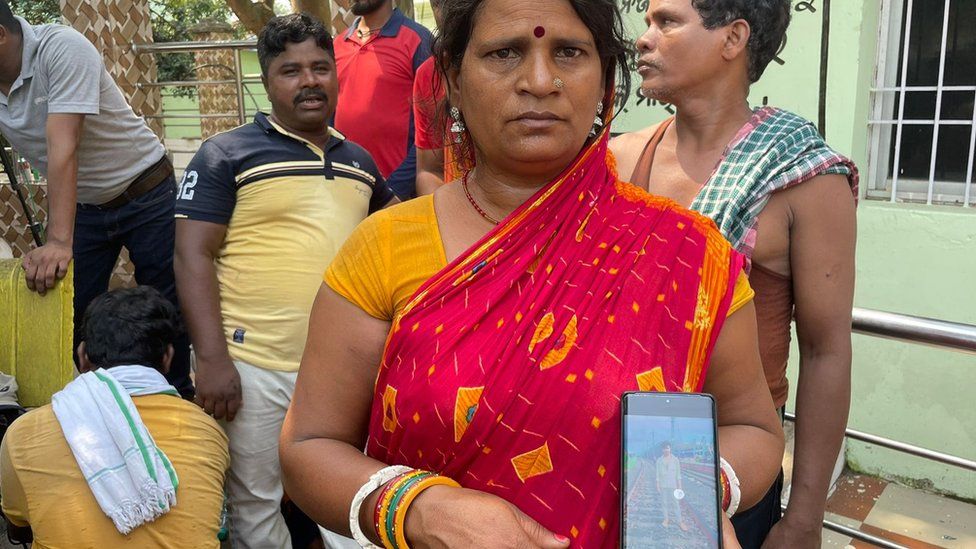
Relatives of the victims of Friday’s deadly three-train crash in India have spoken of their continuing, desperate efforts to find their loved ones.
One woman looking for her adult son told the BBC she had travelled for 30 hours to the crash site, searching hospitals and morgues on the way.
Officials said on Saturday that their rescue mission in Odisha had ended – but one eyewitness said he had seen a survivor retrieved the next morning.
The latest death toll stands at 275.
A signalling fault is emerging as the likely cause of the disaster – India’s worst rail accident for decades.
Lilavati Devi broke down as she told the BBC on Sunday that that she was still looking for her son, although other eight members of her family who were on one of the trains had been located.
“I pray that we find him somewhere – one way or another,” she said. “There’s nothing more I want. May God keep my son safe.”
Her son Raja Sahani, 22, was travelling along with relatives from their hometown in the north-eastern state of Bihar to the affluent southern city of Bangalore – where they work odd jobs as daily wagers.
Travel involves changing trains in the city of Howrah, which is where they boarded the ill-fated train. Raja sent a photo of himself there.

Hours after he departed, Lilavati got a call from another family member saying there had been an accident. She tried Raja’s phone repeatedly after that, but it was switched off.
Her search had yielded nothing so far, she said. They spent 45,000 rupees (£438) hiring a car to make the journey – a cost well beyond their means.
“I have even looked in all hospitals and morgues here, but can’t find him”, she said. “We asked the morgues to show photos of all the dead bodies over and over. But he’s not there.”
Odisha state official Pradeep Jena told the BBC that at least 187 bodies remained unidentified.
Officials were uploading pictures of the victims on government websites and would carry out DNA testing if needed, he said.
“It’s a real challenge for us,” he said.
Others, too, have been shuttling between the different temporary centres, looking at photos and hoping to get some news.
Vishwanath Sahni told the AFP news agency that he was still looking for his 26-year-old son, who had been on his way to Chennai when the disaster occurred.
“I don’t know if I’ll find my son,” he said, while waiting at a morgue – having enquired at every hospital he was able to.
Despite railway officials saying on Saturday that all trapped and injured people at the site had been rescued, search efforts appear to have continued at the crash site.
Journalist and author Sandeep Sahu told the BBC of a “miraculous” discovery on Sunday morning, when an injured survivor was pulled from the mangled wreckage and then rushed to hospital.
He said dead bodies, too, were still being found – and that he had seen five of these taken from the scene, 36 hours after the accident.
These were placed in a nearby school that has been used as a temporary morgue.
There was a “horrifying” moment when one of the victims’ mobile phones rang, he said – “but there was nobody to respond to the call.”
This video can not be played
To play this video you need to enable JavaScript in your browser.
-
-
20 hours ago

-
Thai PM frontrunner attends Pride parade, promising same-sex marriage, gender identity rights

After the draft law and related legislations were blocked in parliament under the previous administration, the coalition, which was made up of eight political parties, has vowed to pass laws — including the Marriage Equality Act — to guarantee equal rights for all couples, regardless of gender.
Although Thailand has one of Asia’s most open and accessible lesbian, gay, bisexual, and transsexual communities, some political activists claim that Thai laws and standard institutions have not taken into account changing social attitudes and continue to separate against LGBT people and same-sex couples.
‘Unsafe’ action by China near American ship in Taiwan Strait: US
The US government reported on Saturday, June 3, that a Chinese Navy fleet approached an American warship transiting the Taiwan Strait in an” dangerous way.” & nbsp, Following what the US military described as an” unnecessarily intense manoeuvre” by one of Beijing’s soldiers close to a Washington surveillance plane lastContinue Reading
GaaSyy: Japan YouTuber arrested over celebrity threats
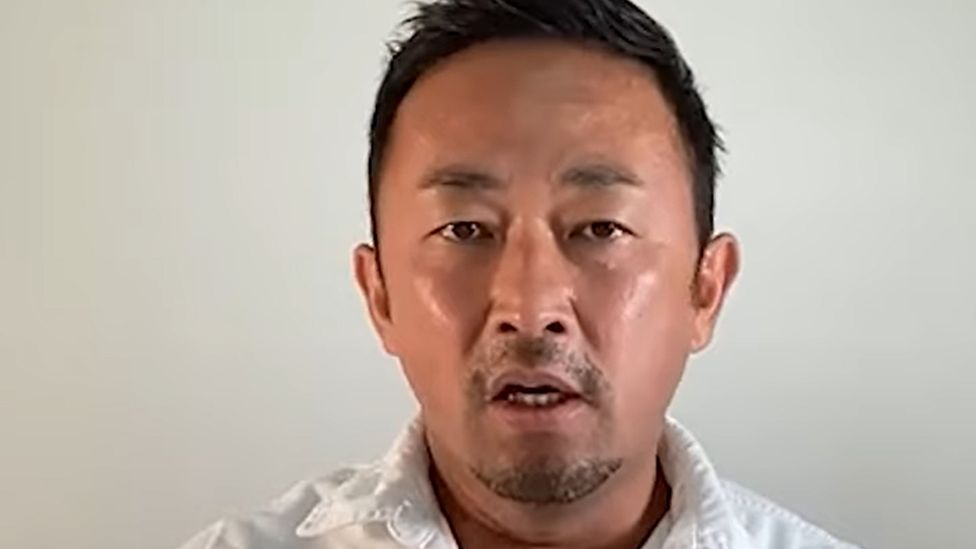 GAASYY/YOUTUBE
GAASYY/YOUTUBEA former MP and YouTuber have been detained by Japanese policeman in connection with alleged threats against famous people.
GaaSyy, Yoshikazu Higashitani’s YouTube channel, is well-known for its celebrity gossip movies.
Two weeks after Tokyo police issued his arrest permit, he reportedly returned to Japan from the UAE, according to local media.
Between February and August of last year, he allegedly threatened to vilify three people: an artist, an investor, and a developer.
Additionally, he is thought to be interfering with the writer’s business operations.
Mr. Higashitani consistently disregarded requests to go back to Japan and deliberately answer questions from the police.
Since May, Tokyo authorities have been dispatching prosecutors to the UAE and pleading with the local authorities to deliver him to Japan.
After Tokyo police obtained his imprisonment subpoena in March, the foreign minister of Japan gave him the order to return his card, but Mr. Higashitani claimed he had misplaced it. His recommendation ran out the next month.
Mr. Higashitani was one of two representatives chosen from the Seijika-joshi-48 group, a single-issue party calling for changes to Japan’s open broadcaster.
The social internet character refused to leave his house in Dubai during his seven months in office and skipped every legislative session.
He reportedly declined to enter parliament at the time, according to Chinese media reports, out of fear of being detained for fraud allegations and defamation claims made by famous people.
Mr. Higashitani was required by lawmakers to travel to Tokyo and apologize in person in the chamber for his absence, but he was unable to attend the ministerial session.
Instead, he declared on his YouTube channel that a trip to Turkey was planned and that his salary would be donated to the Greek disaster relief effort.
The Senate was incensed by his presence, and all of its people voted in favor of his ejection.


